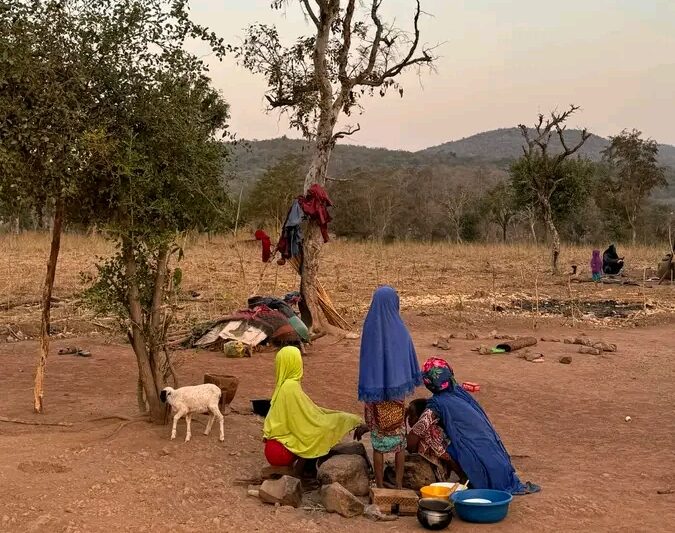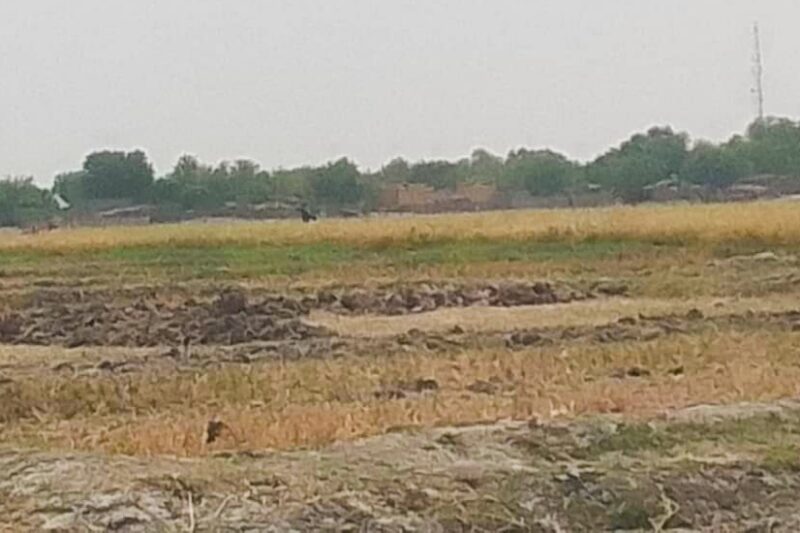Many men have tried to have sex with her, her brother was hit by a car while begging and now 17-year-old Adama Muhammad, who looks after her five siblings and elderly mother, faces being forced out of the only place she can call home, an internally displaced persons’ camp in Maiduguri.
In October, Borno State governor Babagana Zulum declared that all IDP camps within the city would be closed, saying that his decision was informed by the recent improvement in the security of the state.
He said shutting the camps was part of efforts to enable displaced persons to return to their “various ancestral homes”.
Zulum’s decision has hit the teenager and her family, who live in Teachers Camp, hard.
Muhammad, an IDP from Gamboru, a market town in Borno State near the Cameroon border, which has been repeated attacked, told RNI reporter Fatima Grema Modu that she, her siblings and mother had nowhere to go.
Their father died three years ago from a stroke. Her mother was too old and sickly to work and, she said, it was up to her to keep the family going.
“I do odd jobs and hawk to make money. We lack food and often go to sleep with empty bellies. The young children cry from hunger and that’s how they go to sleep.”
Muhammad said her biggest dream had been to go to school but she never got the chance to do so.
“I wanted so much to get an education so that I could do something worthwhile in my life. If I went to school, I might have got a good job and I could have looked after my family.”
She said when she saw her friends going to school it saddened her. She was happy for them but she felt empty inside. “It makes me regret the life I am living.”
One of the worst things about living in the camp was the unwanted attention she received from men.
“Often they call me to their rooms, but I do not go because I fear they will abuse me. One man from a different IDP camp, also in Maiduguri, came to where I was hawking items. He said he would buy all the things I was selling and give me even more money in exchange for my body. I declined. All I am trying to do is help my mother and siblings,” the teenager said.
“There was a time when my young brother went begging and he got hit by a car and injured his head. The car sped off. My brother needs treatment but there is no one to help and we cannot afford to take him to hospital. I try to do what I can for him but I cannot nurse him. My mother and I cry about his lack of treatment. We cried when it happened and we still cry for him.”
And now the Borno State government had made things even worse for Muhammad and her family.
“When I think of our future, I see nothing but agony. Teachers Camp will be closed at the end of this month. I can’t bear to think about our family being returned to Gamboru. It is still under attack at times. The thought of it traumatises me.
“Although things are very hard in the camp, at least we have shelter and somewhere to live. Our neighbours sometimes help us out. Our problems will double if we go back. My father is no longer here to protect and provide for us. I’m scared to go home.”
- On the night of May 5-6 in 2014, the Jamā’at Ahl as-Sunnah lid-Da’way Wa’l-Jihād (JAS), more commonly referred to as Boko Haram, attacked the twin towns of Gamboru and Ngala in Borno State, killing about 310 residents in the 12-hour massacre and destroying the towns. Since then there had been repeated attacks on Gamboru.








